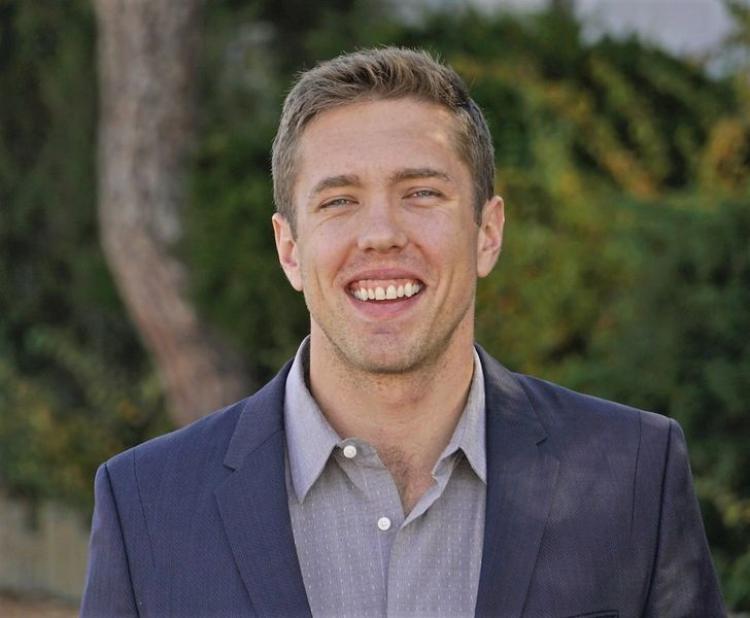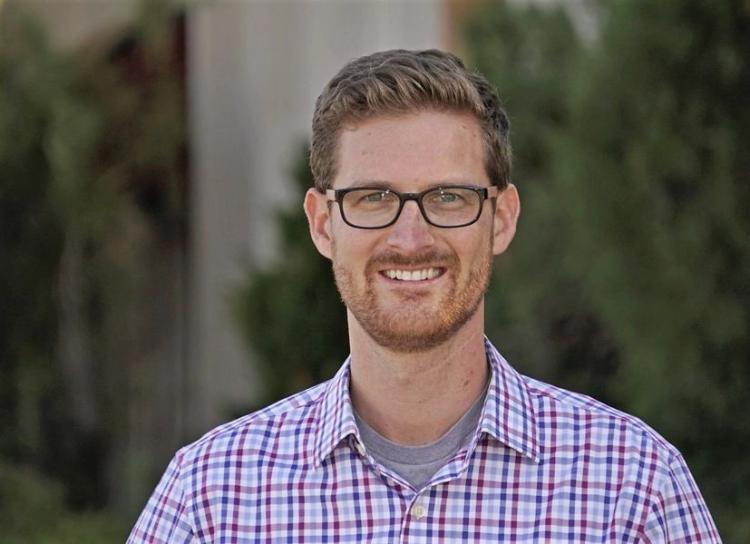Alumni Spotlight: Paul Mountford and Robby Scribner - Respirogen
Two Paul M. Rady Department of Mechanical Engineering alumni are among the leaders of Respirogen, a company that has developed oxygen microbubbles to treat patients suffering from Acute Respiratory Distress Syndrome (ARDS).
Paul Mountford and Robby Scribner joined Professor Mark Borden in developing Respirogen, which launched in 2017 to further develop Borden's research on oxygen microbubbles. With Mountford as the company's director of R&D and Scribner as director of operations, the ME alumni are close to starting human clinical trials for the OMBs.
Mountford and Scribner studied mechanical engineering at the College of Engineering and Applied Science as undergraduates, graduating in 2010. Scribner went into the medical devices industry, while Mountford continued his education at CU. Mountford graduated with his PhD in mechanical engineering in 2015.
Mountford and Scribner shared how their education and experience in the Department of Mechanical Engineering prepared them to successfully create and lead the groundbreaking company.
Paul Mountford
What inspired you to create Respirogen?
Ever since I graduated from the Department of Mechanical Engineering in 2015 with my PhD from Mark Borden's lab, I have worked for startups utilizing microbubble technology. I started working for the company Vesselo, Inc., that was utilizing microbubbles and ultrasound to break up blood clots in the brain that were causing strokes. After that, I started a company based on my research at CU and the University of North Carolina, Chapel Hill that focused on using microbubbles and nanodroplets to shear DNA for DNA sequencing.

Paul Mountford (PhDMechEngr'15), Respirogen Director of R&D
Once I thought I was done with the startup world, Professor Mark Borden approached me with the idea of starting an oxygen microbubble company. The main difference with starting Respirogen was that I knew I would have the opportunity to learn under Bob Scribner, a 30-year startup veteran with multiple successful exits. I introduced Bob and CU alumnus Robby Scribner to Borden at the end of 2016, bringing together what I thought would make a great team for a life science startup – Borden as CSO, Bob Scribner as CEO, Robby Scribner as operations director and myself as director of R&D. We also had very promising data that showed oxygen microbubbles could keep rats alive indefinitely while experiencing compromised lung function, which would otherwise kill them in 20 minutes. With all these pieces in front of us, we decided to found Respirogen Inc. in January 2017.
I personally wanted to found Respirogen because I was eager to work on technology that was more novel than what is being commercialized by large companies, and also had more footing in the clinical world than bench-top research you see in academia. I wanted to help bridge the technological gaps from rat studies to human studies, and then from human studies to commercialization.
How did your CU Boulder education contribute to developing Respirogen?
My undergraduate experience gave me the framework to work on a multitude of problems. I have had to do everything from solving ordinary differential equations in machine learning, to performing statistical analysis for peer-review publications and grants, to fixing electronics mid-surgery that ensure oxygen microbubbles are delivered.
My graduate education taught me to fully understand the problem I was working on before coming up with solutions. My advisor, Borden, taught me to be hypercritical of peer-reviewed publications and to fully understand something before speaking on it. I had seven years of studying microbubble technology between grad school and startups before founding Respirogen.
My entire education experience at CU made me want to understand technology at the PhD level and find ways to translate it to humans and commercialize it as fast as possible. Upon graduating from the undergraduate program, I had nowhere near the confidence to succeed on my own. But after my graduate work with Borden, I gained the confidence and a level of self-criticism that would allow me to start a venture.
Robby Scribner

Robby Scribner (MechEngr'15), Respirogen Director of Operations
What inspired you to join Respirogen?
I have been working in medical devices for most of my career and Respirogen seemed like a great opportunity to work on something new and unique that has the potential to help a lot of people. On a more personal side, as a manufacturing engineer, most of my work occurs downstream. Joining Respirogen was a good opportunity for a new challenge to develop a pharmaceutical from the research stage.
How did your mechanical engineering education at CU Boulder help prepare you to be Respirogen’s director of operations?
My mechanical engineering education was a great foundation in problem solving. To me, that is the foundation of engineering – the ability to evaluate a challenging problem, find the resources you need and come up with a solution, even if you have no experience with that specific issue.
Any advice for future engineering graduates?
I hate giving this advice because I am bad at it myself, but it is all about networking. Just about any job can be fun and rewarding if you work with good people and have a good manager. Finding those jobs is all about who you know.

